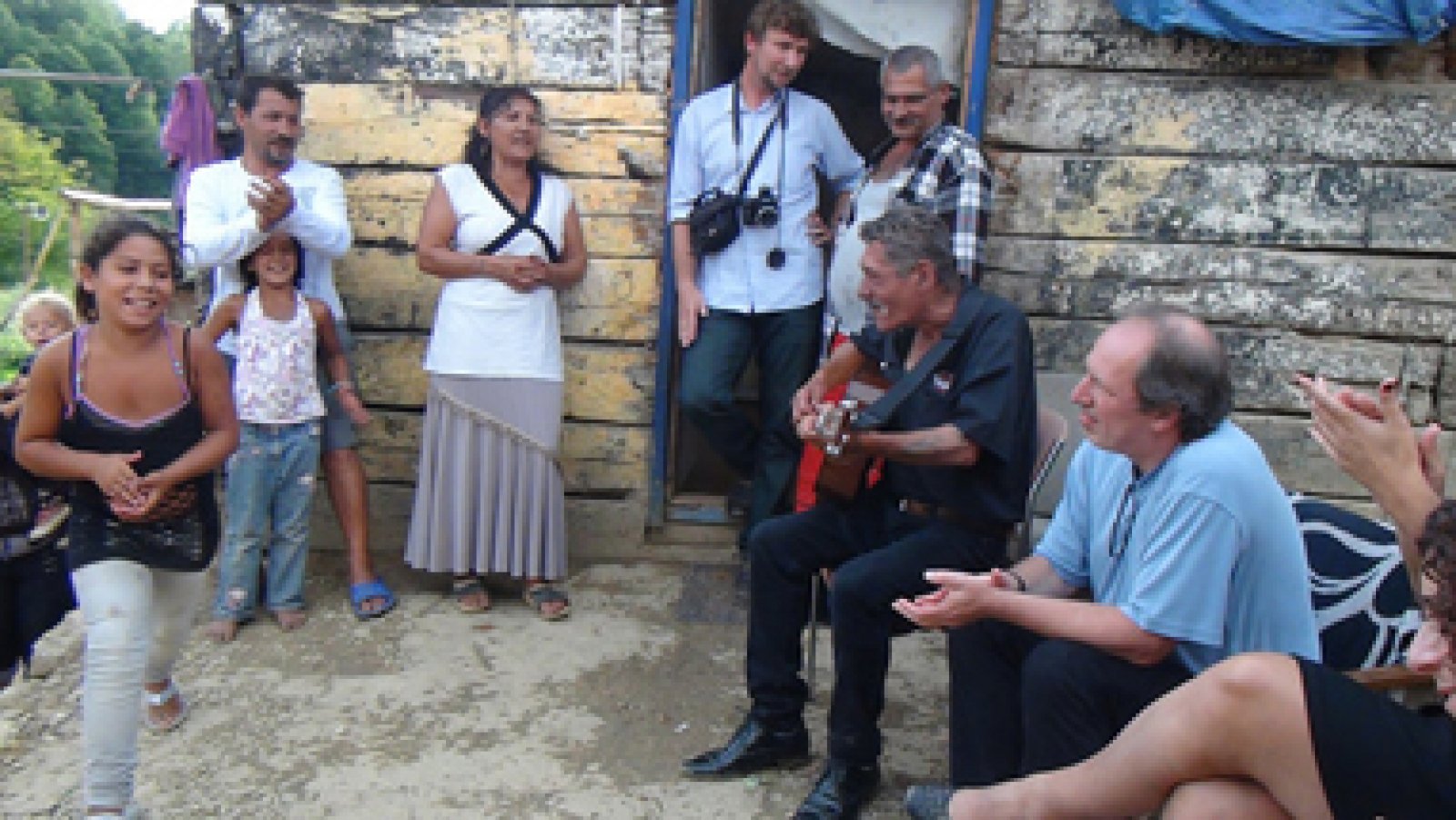
SHARE
As a boy in Germany, Academy Award-winning composer Hans Zimmer heard about the “romantic music and fairy tales of Gypsy life.” But he wasn’t satisfied with the stories and wanted to learn more about the Roma people and their plight.
An opportunity came last year when Zimmer, a long-time human rights advocate, heard about the deportation of Roma migrants from France and wanted to help. His interest led him to NDI, which has been working for the past decade to empower Roma activists in Central and Eastern Europe.
After producing a YouTube video for NDI in honor of International Day of Roma on April 8, Zimmer felt it was of paramount importance to see, firsthand, the living conditions in Roma settlements and to visit with Roma children who attend segregated schools. He also wanted to explore the traditions and culture of Roma musicians as well as hear their music. So last month, with NDI’s assistance, he did exactly that.
Zimmer visited towns and settlements, primarily in Eastern Slovakia, accompanied by the director of his philanthropic Remote Control foundation, Bonnie Abaunza, and members of his sound and editing crew. His daughter Zoe, a professional photographer and supporter of human rights causes, joined the trip to take pictures for an international exhibit on Roma that will open in Los Angeles this fall.
The six-member delegation spoke with those working to help Roma gain political representation to address the urgent housing, health and educational needs of children. During the four-day visit, Zimmer and the team met with NDI partners and program graduates, including activists, community leaders, municipal councilors, members of parliament, ministry officials, journalists, educators and students.
The group visited ramshackle settlements built over abandoned mines that are now collapsing, as well as newly-constructed public housing that has improved the lives of numerous Roma families.
In the town of Rudnany, in eastern Slovakia they met one of three Roma who were elected to the city council last year – for the first time in the city’s history – and who are learning to govern effectively with assistance from NDI. They talked with Roma in the town of Zehra, where non-Roma residents, who are in the minority, want to formally secede from the municipality.
They also visited with young activists and Romani children at community centers in Spisske Podhradie and Roskovce. The latter is among four municipalities participating in a newly-launched NDI project focusing on multi-ethnic cooperation among youth. In each community, the group delivered toys and school supplies for the children.
Because of Zimmer’s interest in Romani music, they also listened to and recorded local musicians playing traditional Romani songs, hoping to incorporate their sound into a future film soundtrack.
"It was a privilege to meet the Roma people, who were welcoming and opened their homes to us.” Zimmer said. “I enjoyed spending time with such talented musicians and with NDI-trained activists who have committed themselves to advance the interests of their communities through the political process."
Among the highlights was an outdoor concert in Ostrovany by Romani musician and activist Vlado Sendrei. Almost two years ago, the government of Ostrovany funded construction of a wall to separate the Roma, who comprise two thirds of the local population, from the rest of the town.
Before leaving Slovakia, the delegation briefed U.S. Ambassador Theodore Sedgwick on their initial thoughts and findings. The Institute’s programming in Slovakia is funded through the U.S. Department of State and the National Endowment for Democracy.
Related:
- NDI Commemorates International Day of Roma with Film from Academy Award Winner Hans Zimmer
- Right click here to download an MP3 version of the music played during the film
- Read more about NDI’s work with the Roma»
Published August 17, 2011



